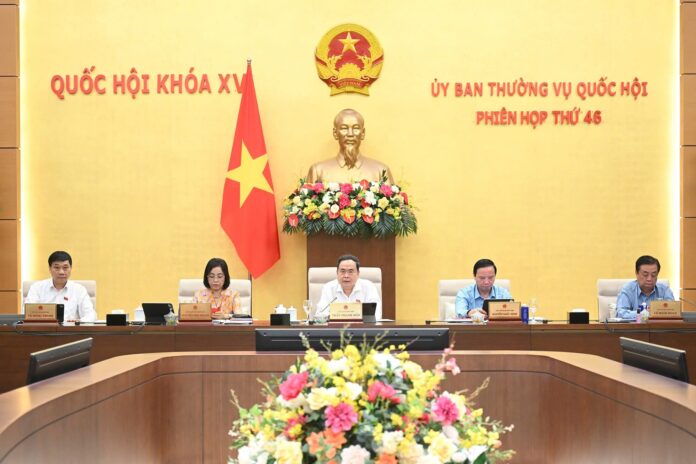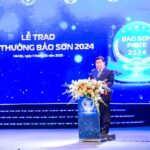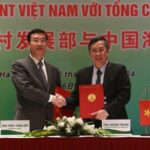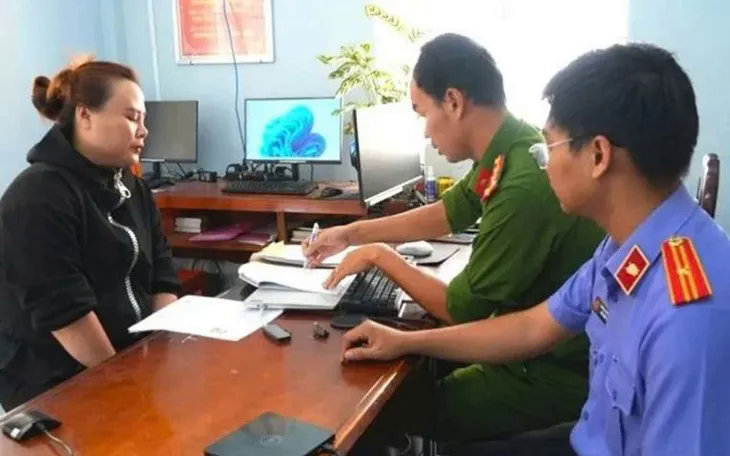Law on Teachers: Addressing Tutoring and Other Key Issues
At the 46th session of the National Assembly Standing Committee (NASC) on June 9, discussions centered around the draft Law on Teachers, with a focus on the important topic of private tutoring. Mr. Nguyen Dac Vinh, Chairman of the Committee for Culture, Education, Youth, Adolescents, and Children, presented a report on the absorption, explanation, and editing of the draft law.
Legitimate Needs and Concerns
Private tutoring and supplementary learning have been a prevalent issue in Vietnam, and the draft law aims to address it. Mr. Vinh emphasized that the law does not prohibit private tutoring but seeks to prevent teachers from coercing students into participating in any form of supplementary learning. This regulation aims to curb the rampant nature of private tutoring and ensure that teachers fulfill their primary responsibility of imparting knowledge during regular class hours.
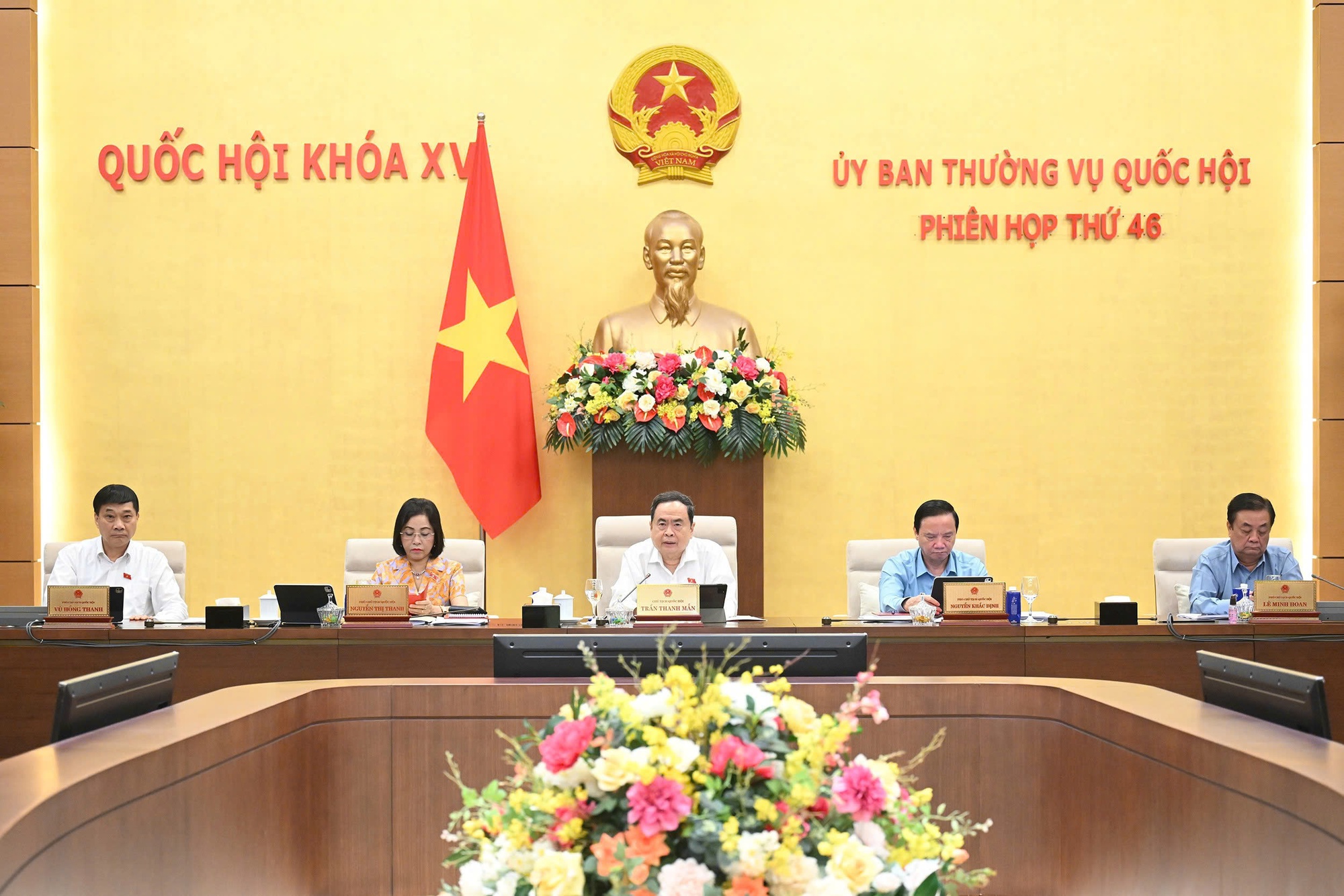
46th session of the NASC. Photo: PHAM THANG
Ms. Nguyen Thanh Hai, Chairman of the Committee for Deputy Affairs, affirmed that private tutoring is a legitimate need, but the core issue is to prevent it from becoming a means of profiteering. She pointed out the challenges in regulating private tutoring, especially with the emergence of online platforms like Zoom and Google Meet, which have made it easier for teachers to conduct paid tutoring sessions outside of regular school hours. Ms. Hai suggested that the draft law should include clearer regulations to prevent such profiteering and ensure that parents are not coerced into signing their children up for supplementary lessons.
In response, Mr. Nguyen Kim Son, Minister of Education and Training, emphasized that the prohibition on coercing students to engage in private tutoring reflects a moral stance rather than a professional regulation. He reiterated that teachers must fulfill their duty to impart knowledge during regular class hours, and failing to do so would indicate a lack of dedication to their primary responsibility. Mr. Son further highlighted the importance of distinguishing between regular teaching hours and private tutoring to prevent any potential abuse of power and to ensure that students’ legitimate learning needs are met.
Liability Exemption in Scientific Research
The NASC also discussed the absorption, contribution, and editing of the draft Law on Science, Technology, and Innovation. Mr. Le Quang Huy, Chairman of the Committee for Science, Technology, and Environment, mentioned that the draft law has incorporated suggestions from deputies, including provisions on risk types, risk acceptance in scientific and technological activities, and the government’s responsibility in detailing criteria for risk determination and assessment processes.
Regarding liability exemption in scientific research, the draft law stipulates exemption from liability only for damages caused to the state and related to the state budget and the finances of state-owned enterprises. For damages caused to individuals, the responsible organizations or individuals will be liable for compensation according to civil law provisions and may also be subject to administrative or criminal penalties, depending on the nature and severity of the case. Ms. Hai praised the acceptance of risk in scientific and technological activities but suggested that a clear distinction be made between acceptable risk and legal violations to prevent abuse, reduce waste, and provide legal assurance for scientists.
Emphasizing that scientific progress involves experimentation and the possibility of failure, Ms. Hai suggested that out of 100 research endeavors, only one may succeed, and the other 99 failures serve as valuable lessons for future scientists. She advocated for policies that encourage scientific exploration, provided that researchers adhere to ethical guidelines and legal regulations. “We need to instill confidence in our scientists, knowing that their sincere and dedicated efforts, within the framework of the law, can lead to groundbreaking discoveries,” Ms. Hai asserted.
Deputy Chairman of the National Assembly, Mr. Le Minh Hoan, requested that the government continue to review and ensure the consistency and compatibility of the draft law with relevant laws to address bottlenecks in the scientific field, particularly regarding investment and finance. He emphasized the need to refine policies on risk acceptance in scientific and technological activities and to establish special mechanisms for technology decoding, purchasing trade secrets, and controlled testing of new technologies, products, services, and business models.
Additionally, Mr. Hoan suggested supplementing and refining policies to support businesses investing in strategic science and technology, along with enhancing the National Venture Capital Fund, local venture capital funds, and the Science and Technology Development Fund.
During the session, the NASC also discussed the draft Law on Digital Industry. Chairman of the National Assembly, Mr. Tran Thanh Man, instructed the drafting and reviewing agencies to further clarify the incentive mechanisms for strategic industries such as semiconductors and artificial intelligence, ensuring feasibility and timeliness in the implementation of supporting policies. He also emphasized the importance of strengthening risk management provisions and carefully preparing guiding decrees to ensure the law’s effective implementation without creating unnecessary administrative procedures.
Enhancing Corporate Bond Quality: A Necessary Precaution
Regarding the draft Law on Amending and Supplementing a Number of Articles of the Law on Enterprises, with a focus on conditions for private placement of corporate bonds, Mr. Phan Van Mai, Chairman of the Committee for Economic and Financial Affairs, shared the committee’s view that the conditions for corporate bond issuance require careful consideration. The aim is to improve the quality of corporate bonds, enhance transparency, manage risks, and meet the capital needs of enterprises.
Given the occurrence of legal violations and the rampant issuance of corporate bonds, Mr. Tran Thanh Man, Chairman of the National Assembly, supported the proposal to determine conditions and debt-to-equity ratios for private placement of corporate bonds as a preventive measure to enhance the quality of corporate bonds.
“Advancing Vietnamese Pharmaceuticals: Long Châu Partners with the Institute of Advanced Technology”
With a staunch commitment to transparency and quality, and a vision for a healthy and sustainable community, FPT Long Chau and the Institute of Advanced Technology under the Vietnam Academy of Science and Technology have officially joined forces. This collaboration aims to accelerate research and the application of advanced pharmaceutical technology to develop innovative healthcare products.
The Bao Son Awards 2024: Celebrating Four Outstanding Scientists
The 2024 Bao Son National Awards recognized four eminent scientists for their exceptional research contributions across diverse fields. The award ceremony celebrated groundbreaking work in the development and production of vaccines for African swine fever, the application of endoscopic surgery in treating thyroid disorders, the innovative use of advanced tri-phase composite materials and structures in engineering, and the historical study of ethnic policies implemented by the Vietnamese Communists. These remarkable achievements showcase the depth and breadth of scientific excellence in Vietnam, highlighting the country’s thriving research landscape.
“Revolutionizing Agriculture: Integrating Scientific Innovations into Farming Practices”
“Minister of Agriculture and Rural Development, Le Minh Hoan, emphasized that businesses have the freedom to collaborate with multiple research institutes, and vice versa. This dynamic creates a marketplace where supply and demand drive innovation. Merely stopping at collaboration is insufficient for long-term success.”

